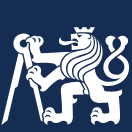Introduction
The University of South Bohemia in České Budějovice is a public research university in České Budějovice, a city in southern Czech Republic. It offers undergraduate, master's and doctoral programs in the humanities, social sciences, natural sciences, technical sciences, agricultural sciences and other fields.
Overview
Number of students and faculty: The university has about 9,000 students and 1,500 faculty, of which 592 students are pursuing doctoral degrees.
Courses: It has more than 220 degree programs, including literature, history, political science, environmental science, mathematics, physics, chemistry, geography, information technology, agronomy, veterinary medicine and other majors.
History
On September 28, 1991, it was formed by the merger of two independent institutions in Budějovice: the branch of the Faculty of Education, established in 1948, which later became an independent Faculty of Education, and the Faculty of Agriculture, which was part of the Prague Agricultural University established in 1960. In November of the same year, the school's academic committee established the School of Biological Sciences, the School of Theology, and the School of Health and Social Studies. The School of Arts was established in 2006, the School of Economics was added in 2007, and the School of Fisheries and Water Conservation was established in 2009.
Establishment time
1991 Years.
School Strength
Teaching Staff: It has a professional and experienced team of teachers, most of whom have doctoral degrees and actively participate in academic exchanges and research cooperation projects at home and abroad.
Scientific Research Achievements: The school has carried out in-depth research in multiple disciplines, achieved a series of important scientific research results, and published a large number of high-quality papers in international academic journals. Its research results have had a wide impact in academia and society. For example, research results in animal science, ecology and other fields have a high international reputation.
Institutional Nature
Public University.
Educational Philosophy
Focus on cultivating students' innovative and practical abilities, emphasizing the combination of theory and practice, and enabling students to master professional knowledge and skills in practice through advanced experimental equipment and technology. It is committed to cultivating professionals with comprehensive qualities, innovative spirit and social responsibility, focusing on international exchanges and cooperation, and cultivating students' international vision and cross-cultural communication ability to adapt to the development trend of globalization.
Key Laboratories and Disciplines
Key Laboratories: The school has a number of advanced scientific research laboratories, which provide strong support for researchers and students to carry out high-level research, and play an important role in the research of biological sciences, environmental sciences, agricultural sciences and other fields.
Key disciplines: Animal science, ecology, aquaculture, grassland, forestry, agricultural engineering, biological sciences and other disciplines are the key disciplines of the school. Some of these disciplines also have a certain influence internationally, such as the 647th place in the world ranking of biological sciences in QS 2023.
Faculty
The school has eight colleges, as follows:
Faculty of Arts: It consists of 8 academic departments.
Faculty of Agriculture and Technology: It is one of the oldest colleges in South Bohemia and one of the founding members of the school. Currently, there are nearly 2,000 students studying for bachelor's, master's and doctoral degrees.
Faculty of Economics: It consists of 8 departments.
Faculty of Education: It consists of 15 academic departments, with about 2,200 students, 156 university teachers and 92 non-teaching staff.
Faculty of Fisheries and Water Resources Conservation: It is the newest college of the school, with 140 faculty members, 230 students and 50 doctoral candidates, more than half of whom are from abroad.
Faculty of Health and Social Sciences: originally part of the Faculty of Education, it became an independent faculty in the 1991/1992 academic year, with a total of 7 academic departments.
Faculty of Science: established in 1991, the successor to the Faculty of Biological Sciences, with 12 academic departments, initially offering courses in the field of biological sciences only, and since 2007, courses in other scientific fields such as chemistry, physics, mathematics, and informatics have been included.
Faculty of Theology: emphasizes Christian ethics and social values.
Rankings
Times Higher Education Young University Rankings 2022: 251-300th in the world, Czech Republic University ranked first.
Times Higher Education World University Rankings 2022: 801-1000th.
2020 Academic Ranking of World Universities: 901-1000th in the world, Czech Republic ranked seventh.
2024 U.S. News World University Rankings: 941st.
Costs
Czech language education is free, but the Czech language level is required to reach at least B2 level. Tuition fees for English courses start at US$1,800 per year. The specific fees vary depending on the major. The latest tuition and scholarship information can be found on the school's official website.
Campus
Campus environment: The main campus is located in České Budějovice, with a beautiful campus environment and tree-lined trees. In addition, the school has branches in Tábor, Vodňany, Nové Hrady There are branches in other places.
Teaching facilities: The school is equipped with modern teaching facilities and laboratories, providing good conditions for students' study and research.
Culture and life: The school often holds various academic lectures, cultural activities and sports events, such as researchers' night, student scientific conferences, etc., to enrich students' extracurricular life and promote communication and cooperation among students. The school also has student clubs, providing students with a wide range of social opportunities.
-

The University of J. E. Purkyne in Ústí nad Labem
-

Mendel University in Brno
-

Charles University
-

Czech University of Life Sciences in Prague
-

University of South Bohemia in Ceské Budejovice
-

Metropolitan University Prague
-

Technical University of Liberec
-

Palacky University, Olomouc
-

Brno University of Technology
-

Czech Technical University in Prague
-

Mesoamerican University
-

Istmo University
-

Mariano Galvez University of Guatemala
-

Regional University of Guatemala
-

Galileo University
-

Francisco Marroquín University
-

Rafael Landívar University
-

University of the Valley of Guatemala
-

University of San Carlos of Guatemala
-

Technological Institute of Tlaxcala Plateau
-

Golfo University
-

Technological University of South Sonora
-

Technological University of Huejotzingo
-

Tizimín Institute of Technology
-

Chilpancingo Institute of Technology
